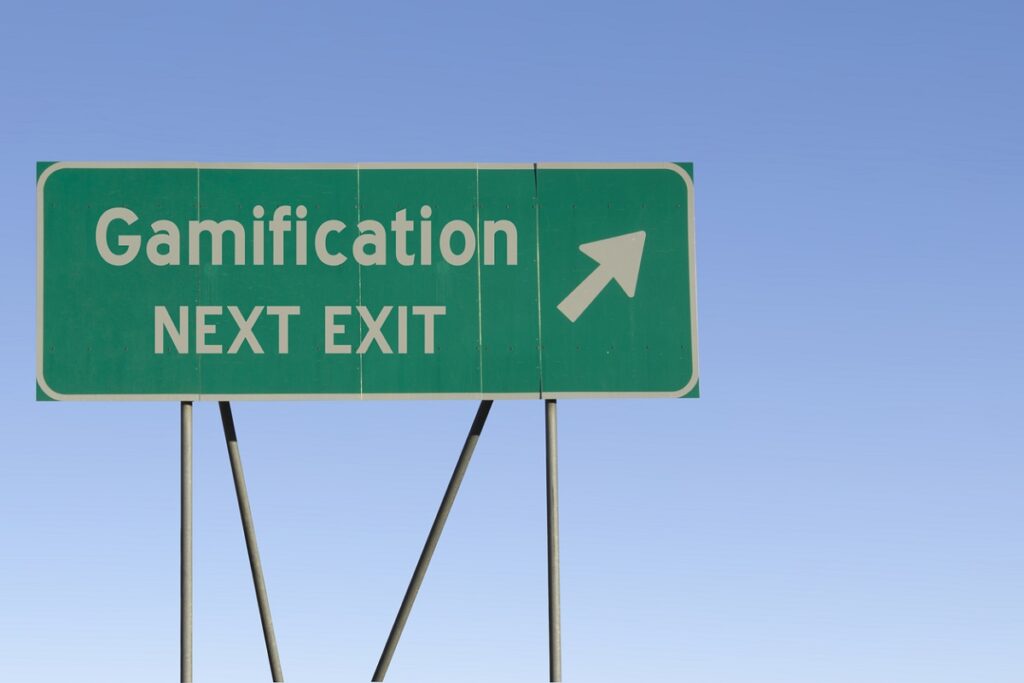In 2014, Gartner noted that human resources is a particular growth area: “while customer-focused applications [of gamification] continue to be developed, there has been faster growth in employee-focused applications”.
Initial usage within the HR space focused on learning and development, utilising game dynamics to enhance engagement with development activities and improve learning. More recently, the potential for gamification to be extended to recruitment processes and tools is increasingly of interest.
Applications at the pre-selection stage of recruitment have been a particular focus: allowing employees to ‘experience’ an organisation within the context of a game (click here for some examples of this application).
The benefits that are positioned for these kinds of assessments are that assessment is implicit, rather than explicit, in that test takers don’t know what they are being assessed against.
In our work within the assessment for recruitment space, we are increasingly finding that our clients are asking about how they can apply gamification to the selection stage of recruitment. The interest and desire to incorporate this is particularly prevalent amongst those working in graduate recruitment, where candidate experience is key and new and innovative approaches are of particular interest.
There is no doubt that candidate experience is not a superficial part of the selection process and is therefore an important consideration.
Indeed, Virgin Media recently discovered that within one year they had lost 7,500 customers as a result of direct job rejection or poor candidate experience – equating to £4.4m of lost revenue.
How can gamification be applied to assessment?
Within the assessment space, the concept of “games-based assessment” has recently come to the fore. In this model, “games” are used as an alternative to traditional psychometric tests, to assess given traits.
The benefits that are positioned for these kinds of assessments are that assessment is implicit, rather than explicit, in that test takers don’t know what they are being assessed against.
Additionally, the immersion and sense of flow created by the game means that test takers are more motivated to complete the assessment, potentially improving the authenticity of their responses (because they are immersed), their views of the selection process, and the accuracy of measurement.
Gamification can be a fantastic way of creating an immersive experience that is realistic and relevant to the context you are assessing for.
Whilst many organisations may be interested in the form of ‘gamification’ described above, we and some of our clients have expressed concerns about the candidate experience created by such assessments. Indeed, one of the key challenges to games-based assessments is their “face validity” – i.e. how job-relevant they appear to a candidate.
Whilst there may be aspects of candidate experience that are enhanced by the use of a game, face validity is likely to be impacted given that the game format necessitates a task or context which is unlikely to be job relevant.
Given the challenges above, what alternatives are there? We find that much of the appeal of gamification is not the introduction of a game per se, but application of design standards and some features from gaming, applied to existing assessment formats such as simulations or situational judgement tests.
Such applications allow for the benefits of face valid, rigorous assessments, combined with the engagement created by games.
Considerations
In light of the above, in considering whether to introduce gamification into your selection processes, we suggest that the following considerations are helpful:
- Understand your business drivers for using gamification in assessment – if you are doing it because you feel you should, and others are, this is not a good starting point!
- Ensure that you are clear on what you are measuring within your selection process – and make sure that any assessment is based around this.
- Recognise the tension between candidate experience in terms of fun/engagement and perceived job relevance – to ensure that you are fully aware of the risks and benefits before you adopt an approach.
- Don’t focus on candidate experience over accurate assessment – the core principles of effective assessment design still apply, regardless of the candidate experience.
Avoiding ‘game over’
In considering the introduction of gamification within your recruitment processes, don’t be led by the inclusion of an assessment (game-based or otherwise) for the sake of it! Ensure that any introduction is based on good assessment practice – primarily measuring relevant skills and qualities required in the roles that it is being used for.
Getting to the right people more efficiently with some brand engagement along the way is the ultimate win. Gamification can be a fantastic way of creating an immersive experience that is realistic and relevant to the context you are assessing for.
However, beware of being romanced by style over content. You should always have in mind that game based assessment is about assessment, not just games.
Utilising the basic principles and best practice in assessment design is key to getting the most out of gamification principles across the recruitment process.
Interested in this topic? Read It’s not just fun and games any more: why gamification matters in HR.











